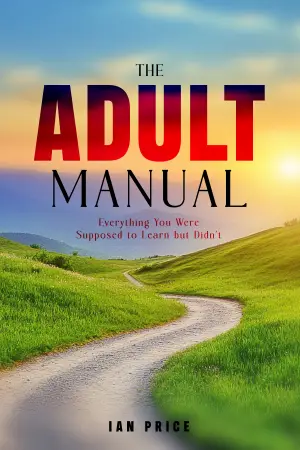Book Review: Finance for the People by Paco de Leon
As an avid reader with a keen interest in personal finance, I was excited to dive into Finance for the People. I’ve waded through quite a few financial guides, and I was intrigued by the book’s promise to take a more holistic approach—focusing not just on skills and behaviors but also on the emotions and beliefs surrounding money. With glowing endorsements and an illustrated format, I felt it might be the refreshing read I had been seeking.
From the beginning, the book stood out for its accessible approach. Packed with practical exercises, Paco de Leon guides readers through identifying and confronting their unconscious beliefs about money. The illustrations throughout provide added clarity, making complex financial concepts enjoyable and even fun to grasp. The empirical grounding in emotional analysis is especially refreshing.
One of the strengths of this book, as mentioned by other readers, is how relatable it is. Mindy, a fellow reader, pointed out that the breakdown of financial concepts made them “more palatable.” I can wholeheartedly agree; even the most daunting topics like student loans or investing felt more approachable thanks to de Leon’s friendly writing style. While some readers noted that the book shines for younger audiences, I believe it offers valuable insights for anyone looking to redefine their relationship with money.
However, it’s not without its shortcomings. A reviewer named cirious raised a valid point about the book’s limited content for older adults or those nearing retirement. As someone who falls a bit outside the "young person" demographic, I found myself yearning for additional strategies tailored to those of us looking to catch up financially. This lack of inclusivity could pose a barrier for some older readers who would benefit from more targeted advice.
Another positive I experienced was the genuine insight and humor woven into de Leon’s narrative. Several readers, including nfBoston, mentioned laughing out loud at countless moments, and I felt the same. The authentic voice, particularly appealing as it comes from a BIPOC Queer woman, adds a layer of relatability that I found inspiring. It was refreshing to read financial advice grounded in real-world experiences and emotional transparency, which I sometimes feel is lacking in this genre.
The blend of mindfulness practices and practical guidance is intriguing. The book encourages using gratitude practices to shift our mindset around spending and saving—a technique I found particularly enlightening. For those of us who often grapple with guilt or shame around financial choices, this approach can be liberating.
As for the pacing and structure, some sections may feel overwhelming due to the density of the exercises. While I enjoyed the illustrated components, I sometimes found myself wishing for a bit more variety in how the information was presented.
In terms of content, Paco de Leon delivers on her promise. As advertised, this book serves as a practical guide to navigating your financial life. The book’s audience is broad, designed for anyone who has ever felt unseen, bored, or overwhelmed by traditional financial discourse. I would wholeheartedly agree that it’s time for readers at any stage of their financial journey to take a closer look at their beliefs surrounding money.
In conclusion, Finance for the People exceeded my expectations in many ways. It presents valuable insights with clarity and wit, addressing the reader’s emotional relationship with money while providing actionable advice. Though there are areas where the book could have explored broader perspectives—especially for older readers—the vast majority will find it approachable and deeply resonant. I recommend this book to anyone looking to demystify their financial journey and might urge older readers to supplement their insights with additional resources.
Overall, I would rate this book 4.5 out of 5 stars. It’s a must-read for those eager to transform their financial mindset while being equipped with practical tools to do so!








